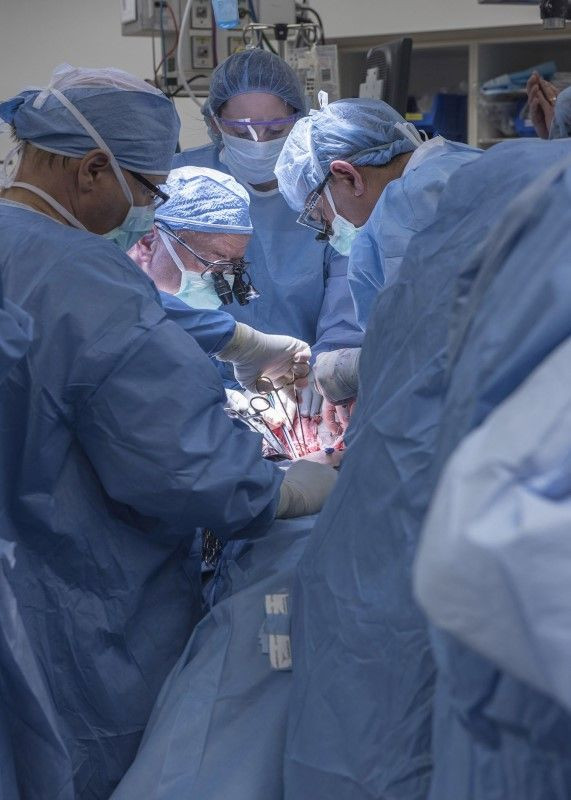First US Uterus Transplant Fails Due To Complications: Ohio Hospital

(Reuters) - The first uterus transplant in the United States has failed and the Ohio hospital that performed the procedure said on Wednesday the organ was removed due to an unspecified complication.
“We are saddened to share that our patient, Lindsey, recently experienced a sudden complication that led to the removal of her transplanted uterus," Cleveland Clinic said in a statement.
It said the hospital was looking into the reasons for the failure and would provide more details later.
The 26-year-old Lindsey underwent the transplant in late February and has been identified only by her first name to protect the privacy of her three adopted sons. She had said on Monday that she was looking forward to getting pregnant next year.
She was born without a uterus and had received a womb from a deceased donor in her 30s.
In her own statement on Wednesday, Lindsey thanked Cleveland Clinics doctors for acting quickly to ensure her health and safety.
"Unfortunately I did lose the uterus to complications. However, I am doing okay and appreciate all of your prayers and good thoughts," she said.
The transplant, performed during nine hours of surgery on Feb. 24, was the first of 10 uterine transplants planned as part of a clinical trial at the Cleveland Clinic, which has screened 250 potential recipients.
The Cleveland team of surgeons who are conducting the trial said they worked closely with doctors in Sweden, where five babies have been born since 2014 to mothers with transplanted wombs.
Cleveland Clinic said its study is still ongoing in order to advance medicine and provide an additional option for women and their families.
Before announcing the problem with its first transplant, the clinic said this week that women who get a womb transplant are expected to stay in the hospital one to two months following surgery, then return home and lead a fairly normal life on immunosuppressant medications to keep their bodies from rejecting the transplanted organ.
Embryos from the woman's eggs and her partner's sperm will be implanted in the uterus. Women who receive the transplant cannot conceive through intercourse because the uterine transplant does not include the fallopian tubes.
Babies will be delivered by cesarean section as close as possible to its due date, the hospital's doctors said.
(Reporting by Jon Herskovitz in Austin and Fiona Ortiz in Chicago; Editing by Tom Brown)



























